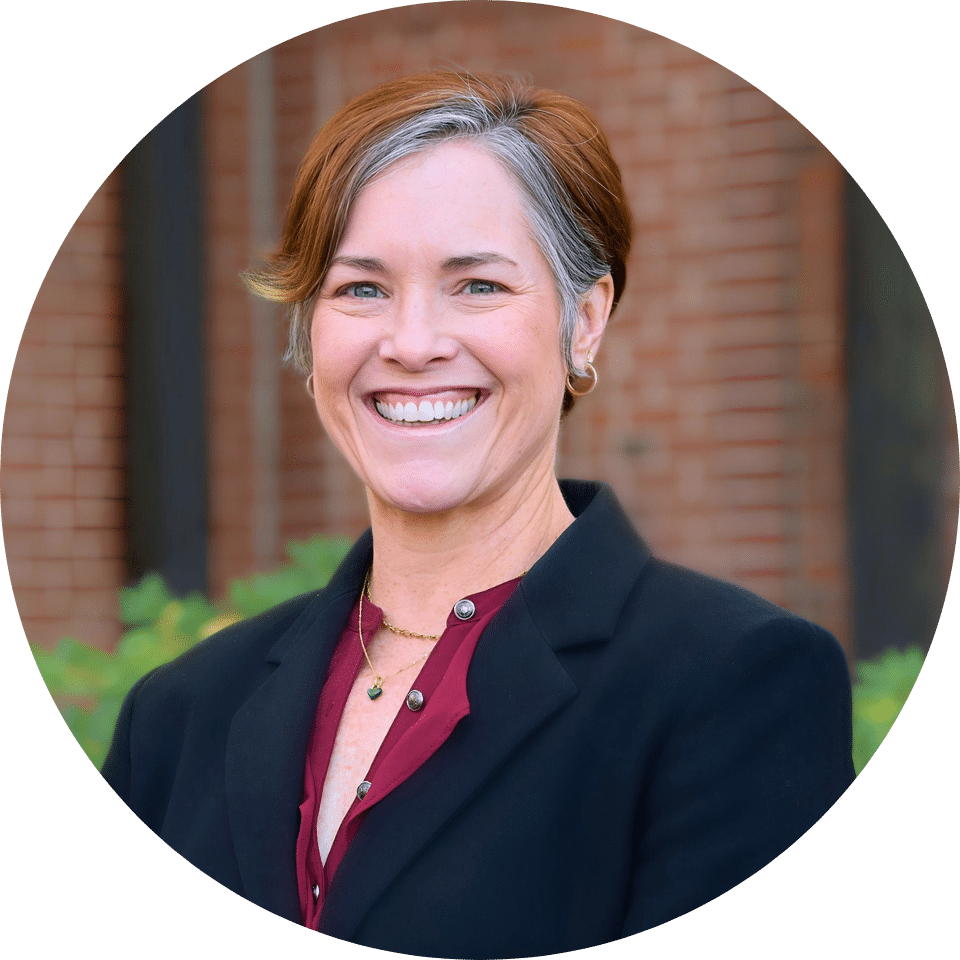ABOUT THE AUTHOR:
Anne Thompson, Private Client Advisor
Anne is passionate about helping clients build financial plans that are clear, relevant, and actionable. She provides personalized service to individuals and families on their entire financial lives: from mapping out investment decisions to estate planning.
Discussing future plans can be lots of fun: whether you are booking a trip, planning a wedding, or prepping for a grandbaby’s baptism. Life is full of fun activities that require careful consideration and forethought.
While planning for death is not usually considered a fun activity it is as important as all those other milestones you prepare for. By having these discussions and making a plan, you can relieve the burden on your spouse and family. But how do you prepare for an event that will happen in the future when no date is defined?
Get your notepad ready and let’s dive into this serious topic:
Assemble Your Team
The first step is to make sure you have a team of professionals that you trust and feel comfortable with. These important players will help you and your family navigate the technicalities of your finances, estate, and property.
Tax Professional: Do you have someone that does your taxes today? If not, considering hiring or setting up a meeting with an accountant. You want to work with someone that will be familiar with your taxes as a couple and know your information and wishes.
Financial Professional: Both spouses need to attend annual meetings with your financial professional. If you are a self-directed investor, think about having a portion of your assets managed professionally, so that both you and your spouse can become comfortable with that person.
Banker: Both spouses need to be familiar with the people in your local bank. Meet with a banker once a year and have them get to know you.
Attorney: Preferably an estate attorney. They can assist with probate or executing the family trust.
Trusted Contact: This might be a family member, attorney, accountant or another third-party who you believe would respect your privacy and know how to handle the responsibility of serving as a security force for your accounts. Learn more about a Trusted Contact below!
Finding an Advisor
Make sure you do your due diligence to find a financial advisor that works for you!
- Registered with SEC or a state regulatory authority.
- Find out if they have customer complaints or a disciplinary history. If they do, ask them about it.
- Read the firm’s Client/Customer Relationship Summary (Form CRS). This document can help explain the most important aspects of the investment firm and professional — what services they can offer you and what you will pay for them.
(You can look up local professionals on the US Securities and Exchange Commission website or FINRA BrokerCheck. These resources are Federal regulatory agencies that regulate the investment advisor industry and broker-dealers.)
It is crucial that both you and your spouse meet with and are comfortable with these professionals. You can also consider bringing other trusted family members, such are your adult children or the planned executor of your estate to these meetings.
Preventing Financial Abuse
Elder abuse is a real thing and while you might not think you are susceptible, these bad actors often take advantage of recent widows/widowers. Family, friends, healthcare workers, scam callers can all have agendas that can manipulate situations or your spouse for their causes. Financial professionals, such as financial advisors and bankers, are trained to identify elder abuse and other financial exploitation. However, if we don’t have an existing relationship, it can be hard to identify elder abuse when it happens.
So, how can you protect yourself? A simple step you can take to help protect your accounts and assets is to set up a Trusted Contact.
WHAT IS A TRUSTED CONTACT?
“A trusted contact is a person that you authorize your brokerage firm to contact in limited circumstances, such as if your broker has trouble reaching you or has a reasonable belief that your account may be exposed to possible financial exploitation. Naming someone as a trusted contact does not give that person any authority to act on your behalf, execute transactions or engage in activity in your account.”
Source: Investor.gov
We can easily add a Trusted Contact to any new or existing account. This person does not have any trading authorization and cannot withdraw any funds. Rather, they are a resource that we can contact to discuss your situation if our team has suspicions that someone is taking advantage of you or jeopardizing your hard-earned assets.
In this age of phone scams and email hackers, adding a Trusted Contact is a straightforward security method that can protect you and your family.
Grief can be so overwhelming, and having a team in place prior to events happening can help streamline the details and distractions and allow your loved ones to focus on remembering the person who passed away and supporting those around them.

Anne Thompson
Private Client Advisor
Anne is passionate about understanding her clients’ particular needs and helping those clients build financial plans that are clear, relevant, and actionable. In her role as a Private Client Advisor, she provides personalized service to individuals and families on their entire financial lives: from mapping out investment decisions to estate planning. As a CRPC™, Anne specializes in helping her clients take the necessary steps to reach their retirement goals.
Sources & Further Reading
The information contained within has been obtained from sources believed to be reliable but cannot be guaranteed for accuracy. The opinions expressed are subject to change from time to time and do not constitute a recommendation to purchase or sell any security nor to engage in any particular investment strategy. Investment Advisory Services are offered through Greenwood Capital Associates, LLC, an SEC-registered investment advisor.
Excerpts from or links to this article on the Greenwood Capital Insights page have been included in Greenwood Capital social media pages and distributed Greenwood Capital newsletter. As is the nature of social media, the general public is able to post comments and/or “likes” in response to these excerpts and/or links. These comments are unsolicited and are posted by either clients or non-clients, which could be interpreted as client testimonials or public endorsements, respectively, and no cash or non-cash compensation is provided. A conflict of interest could exist related to unsolicited posts as Greenwood Capital and its investment adviser representatives could indirectly benefit from these posts.










